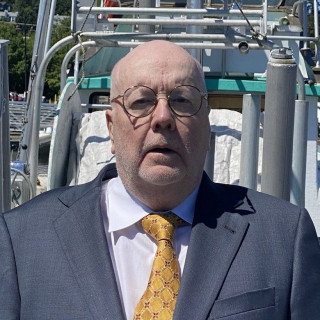Tom Evans

Washington, 9th Circuit, All State Courts in the Washington State, U.S. Supreme Court
Picking the wrong maritime lawyer can be like drowning in a bath tub of salt water.But salt water runs through my veins. Being born in Seattle, My first salt water job as a longshoreman and ILWU membership starting at age 16. This was long before containerization and when longshoreman carried steel hooks for grabbing boxes, and the entire waterfront was controlled by the ILWU. I walked picket lines during strikes and learned what living without a wage means.I beame a lawyer after seeing what employer union busting looked like and how marine employers out-gunned and out lawyerd workers in negotiations. I worked my way through law school, made law review and was fortunate enough to work briefly with Senator Warren Magnuson, chair of the U.S. Senate Commerce Committee. When it became time to start a private practice I went back to my saltwater roots and started by representing persons working on huge factory trawler boats just as the Bering Sea bottom fish industry was starting. All of the fish companies were treating processors, below deck workers, and about every position except in the wheelhouse, as non-seaman unentitled to the benefits of Federal Law, Jones Act and General Maritime law. So, I brought suit in District Court, Donna Wells v. Artic Alaska and won a ruling, regardless of their work status, a maritime worker contributing to the mission and function of a vessel, including processors etc.are protected by Fedderal law and to be treated as seamen.This resulted in benefits to thousands of workers who had little to no benefits for injury, except occasionally workers comp. Years later I brought and won a class action on behalf of some 8,000 Alaska workers compensation workers who were actually Federal seamen